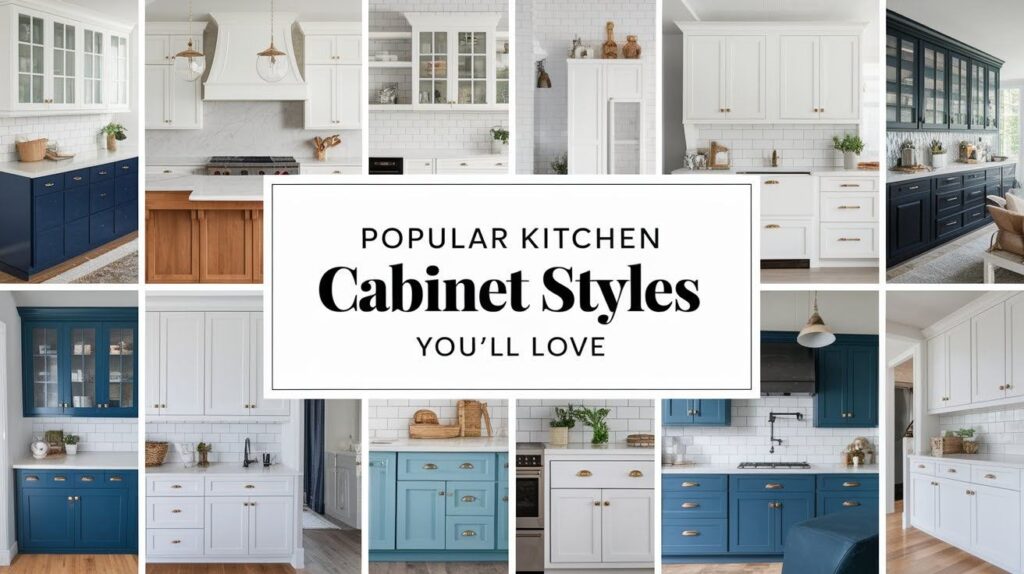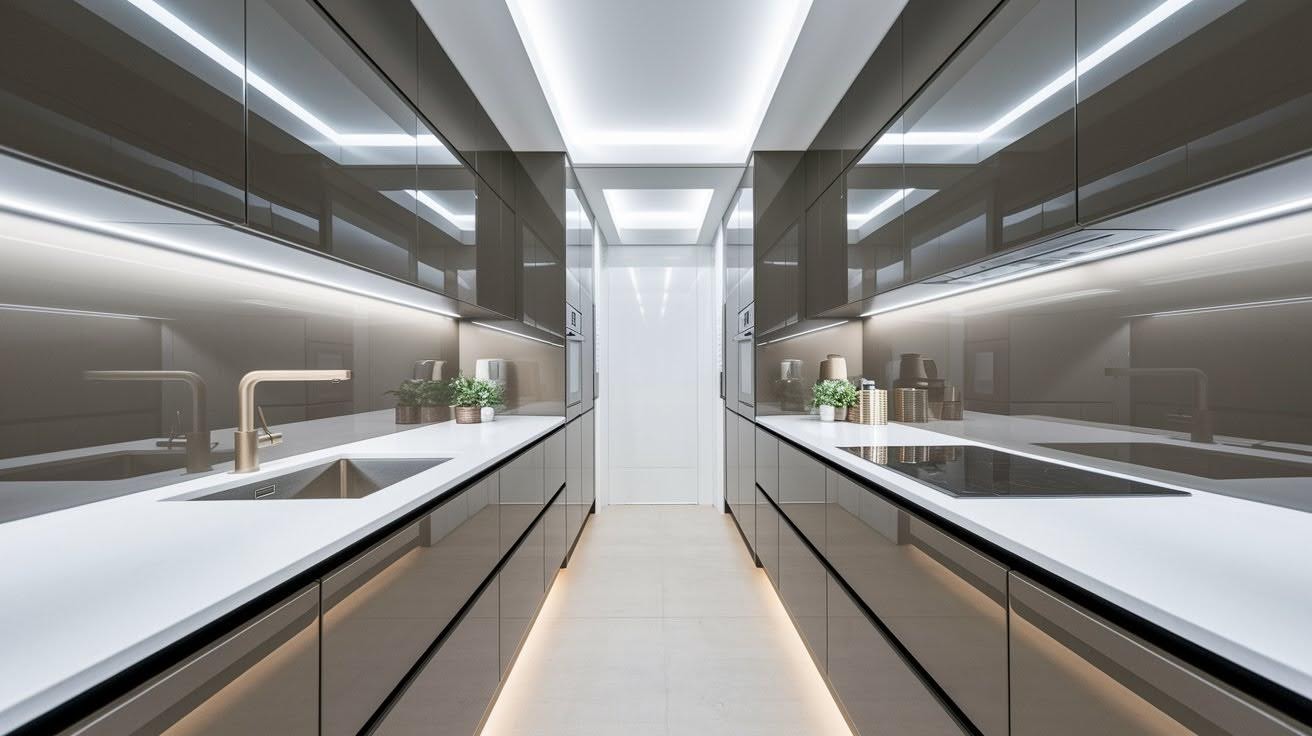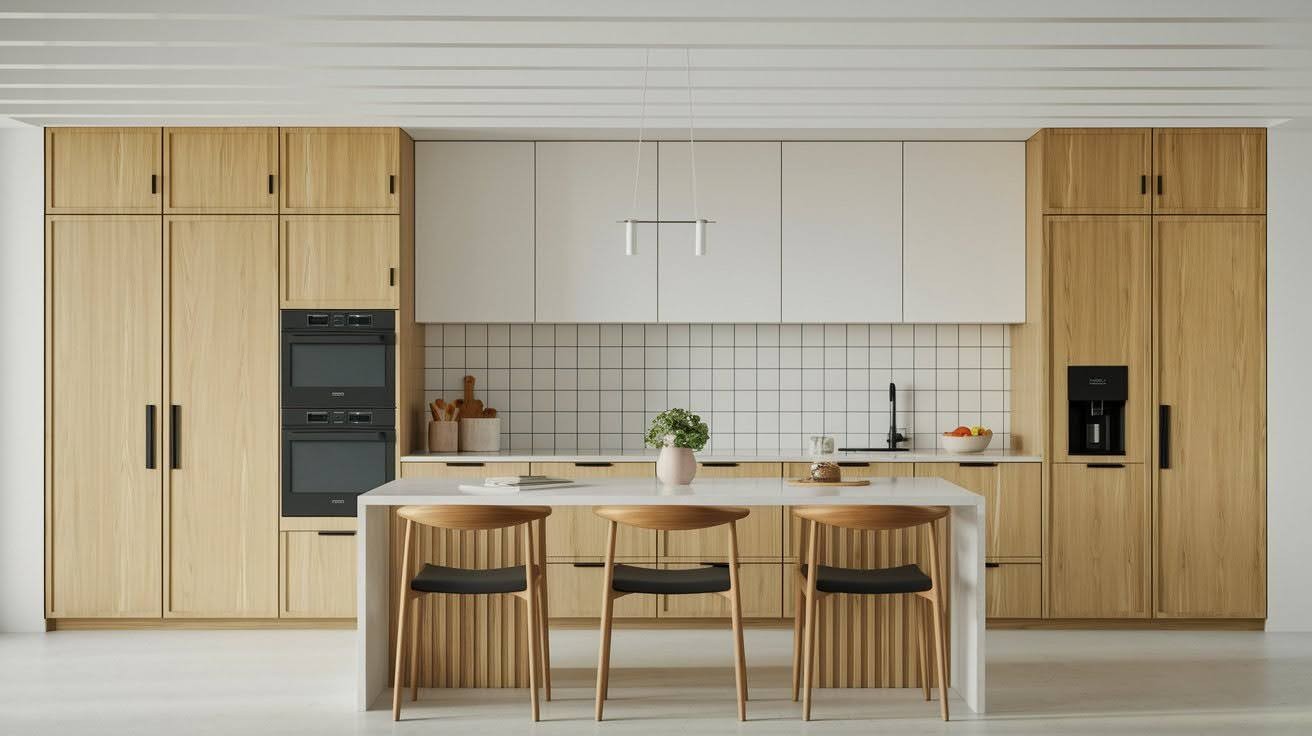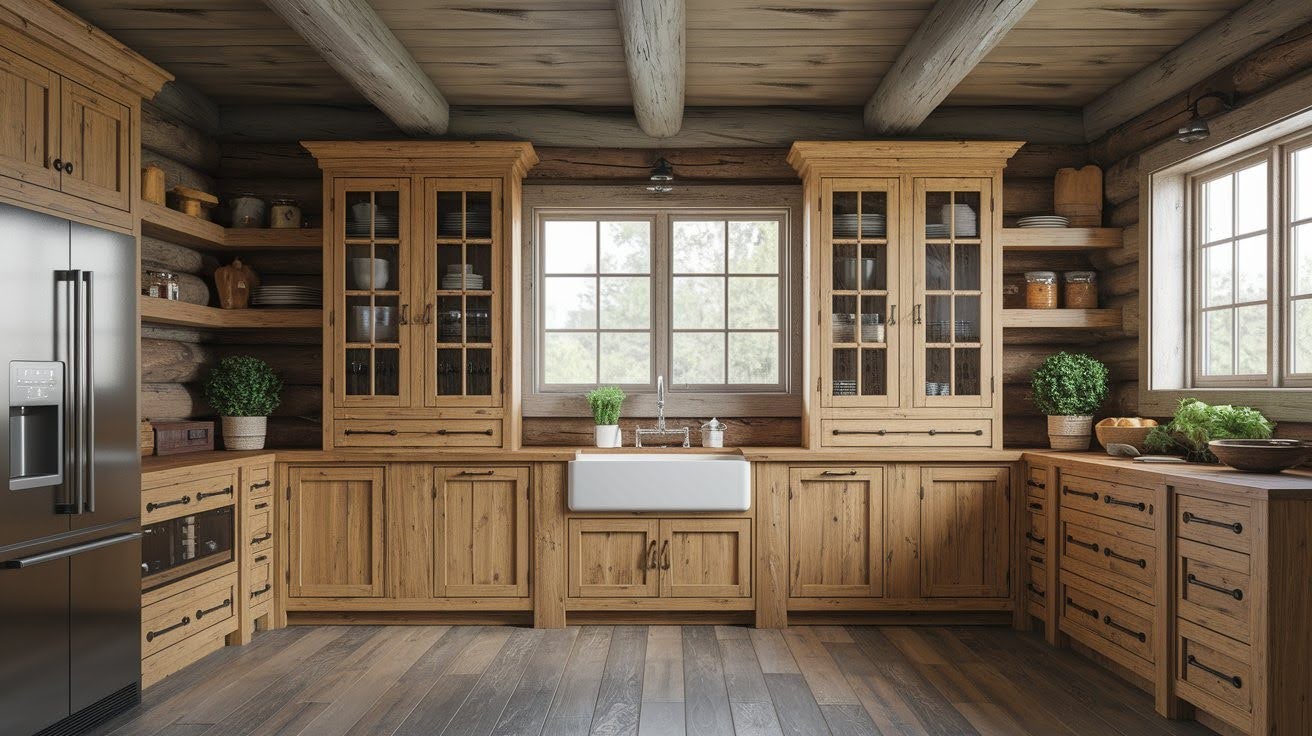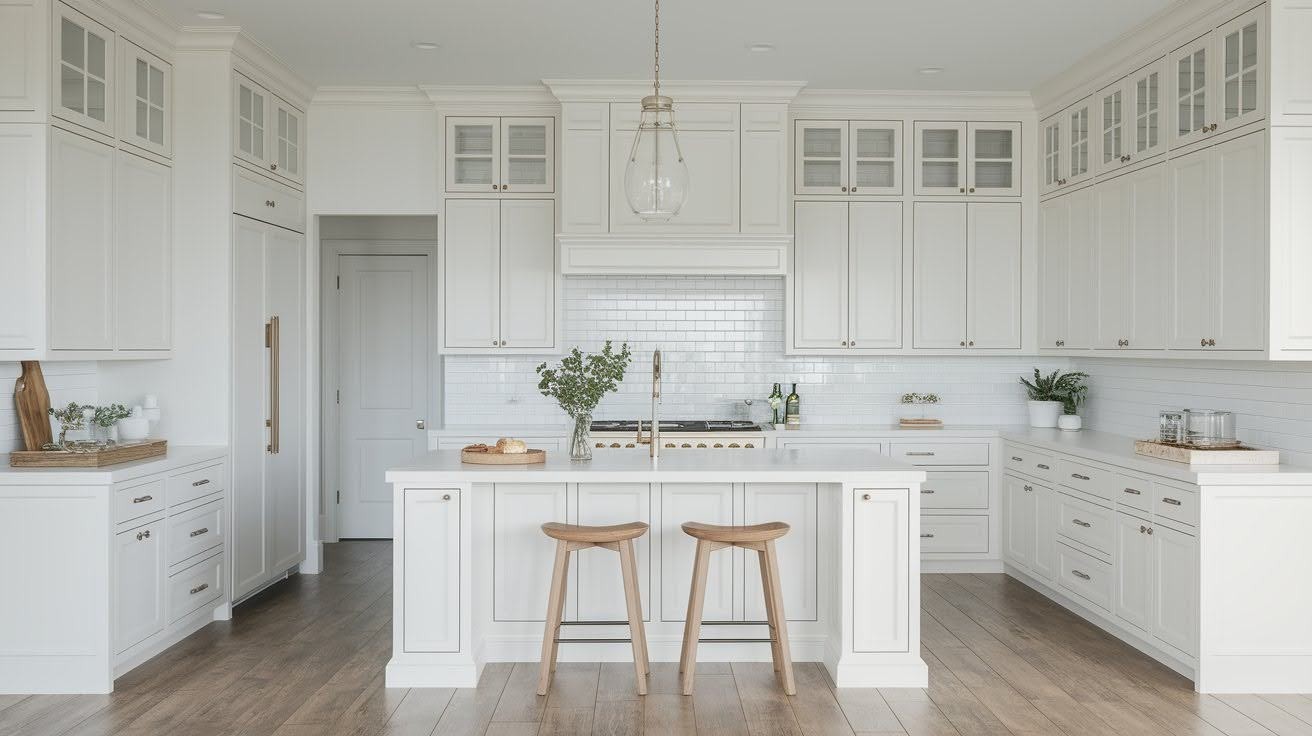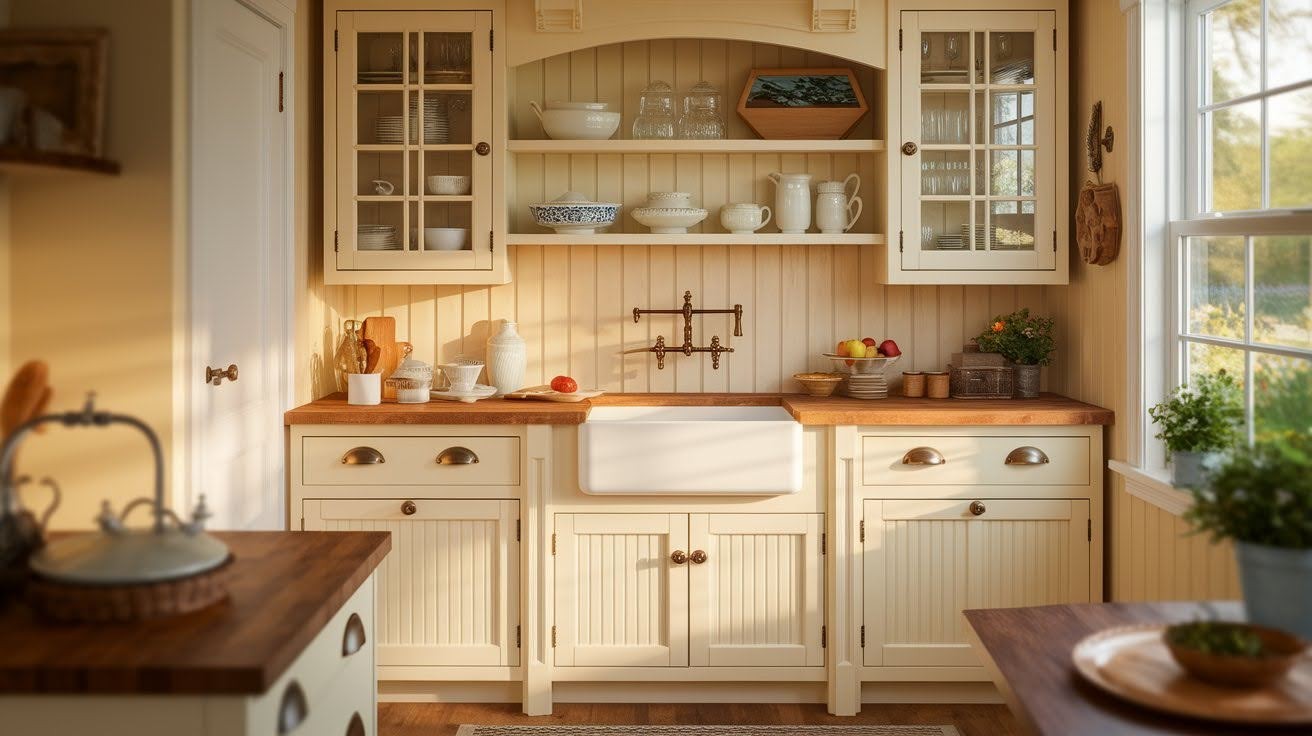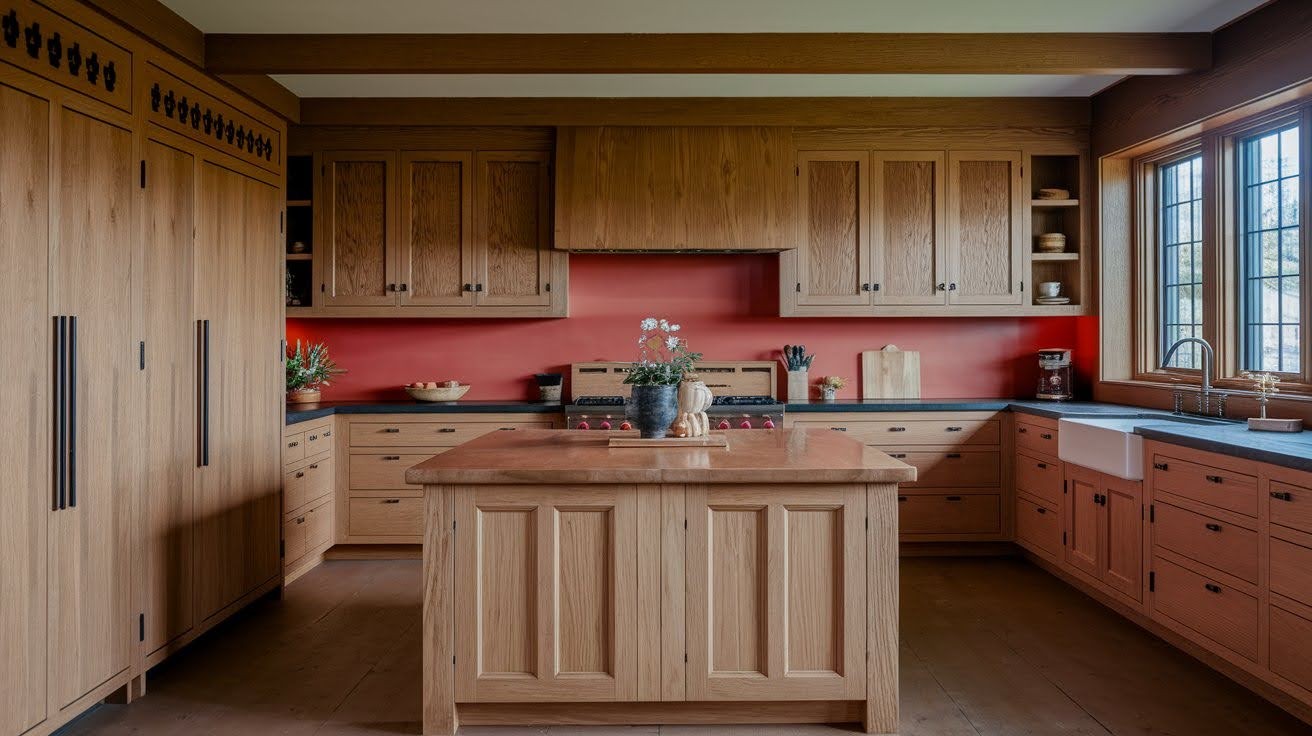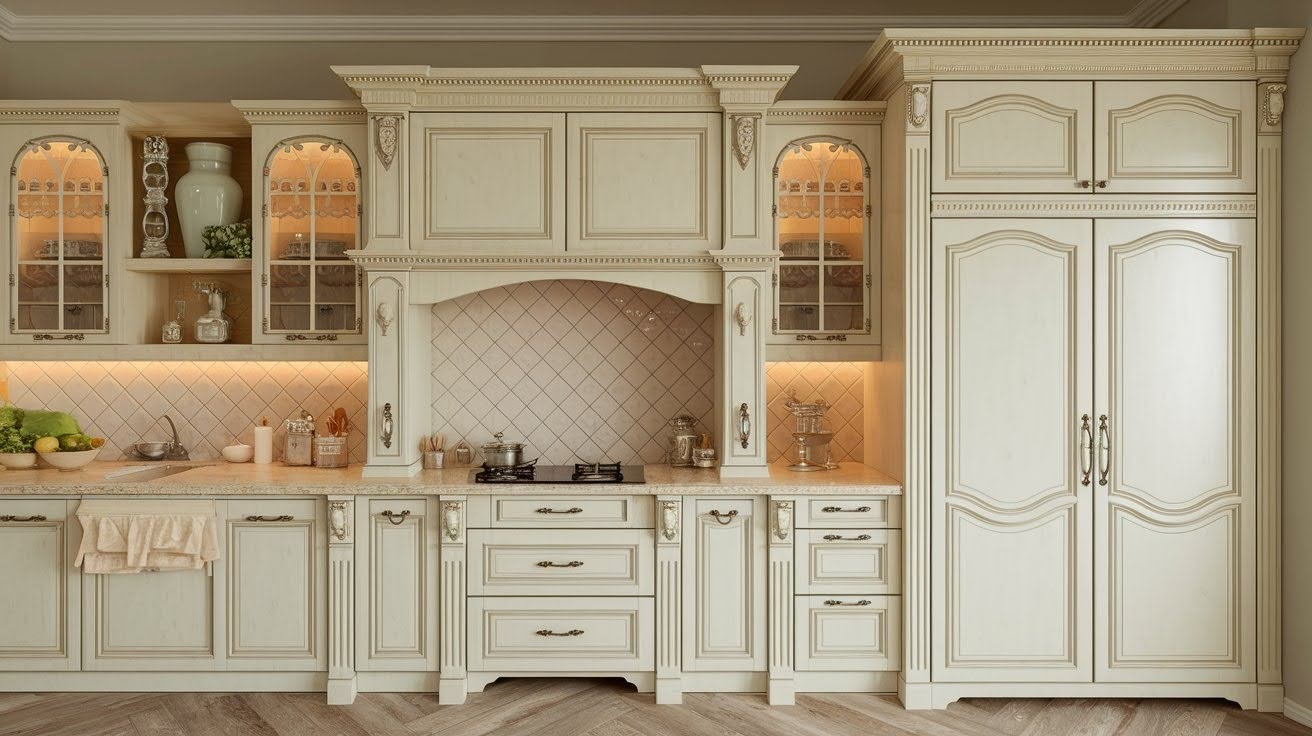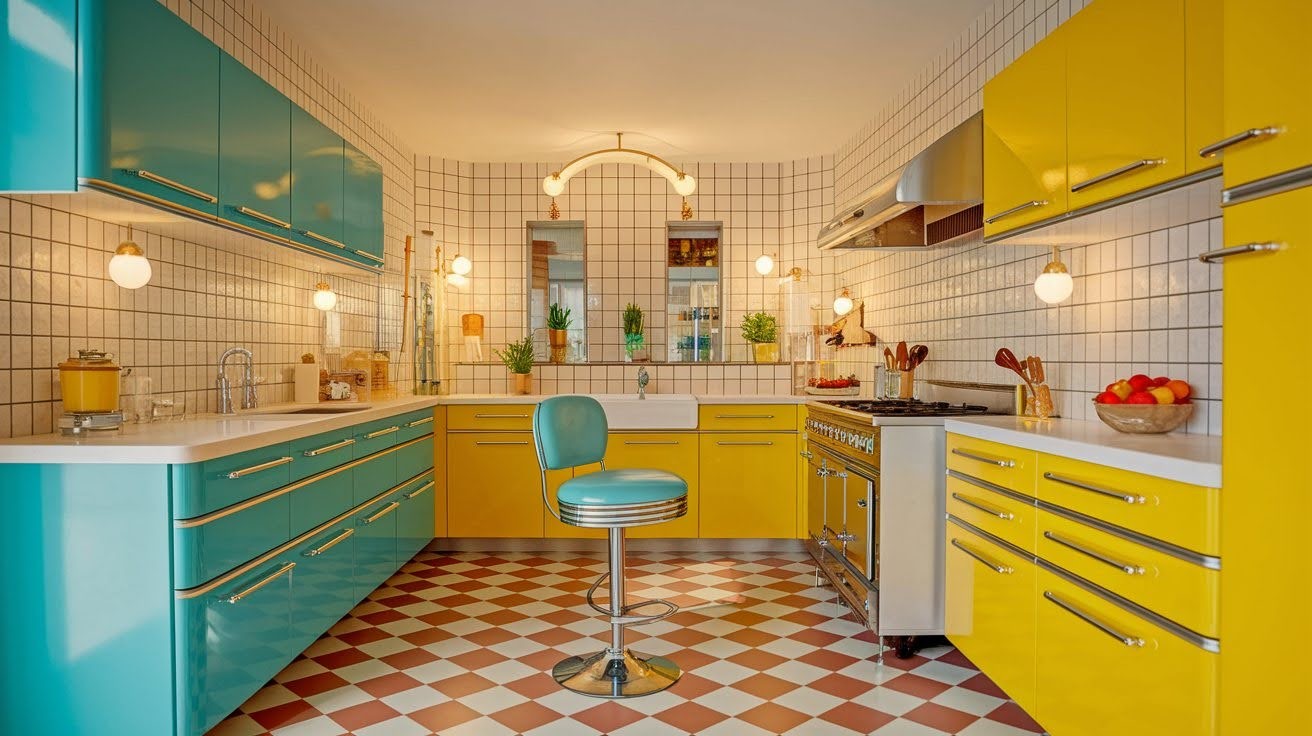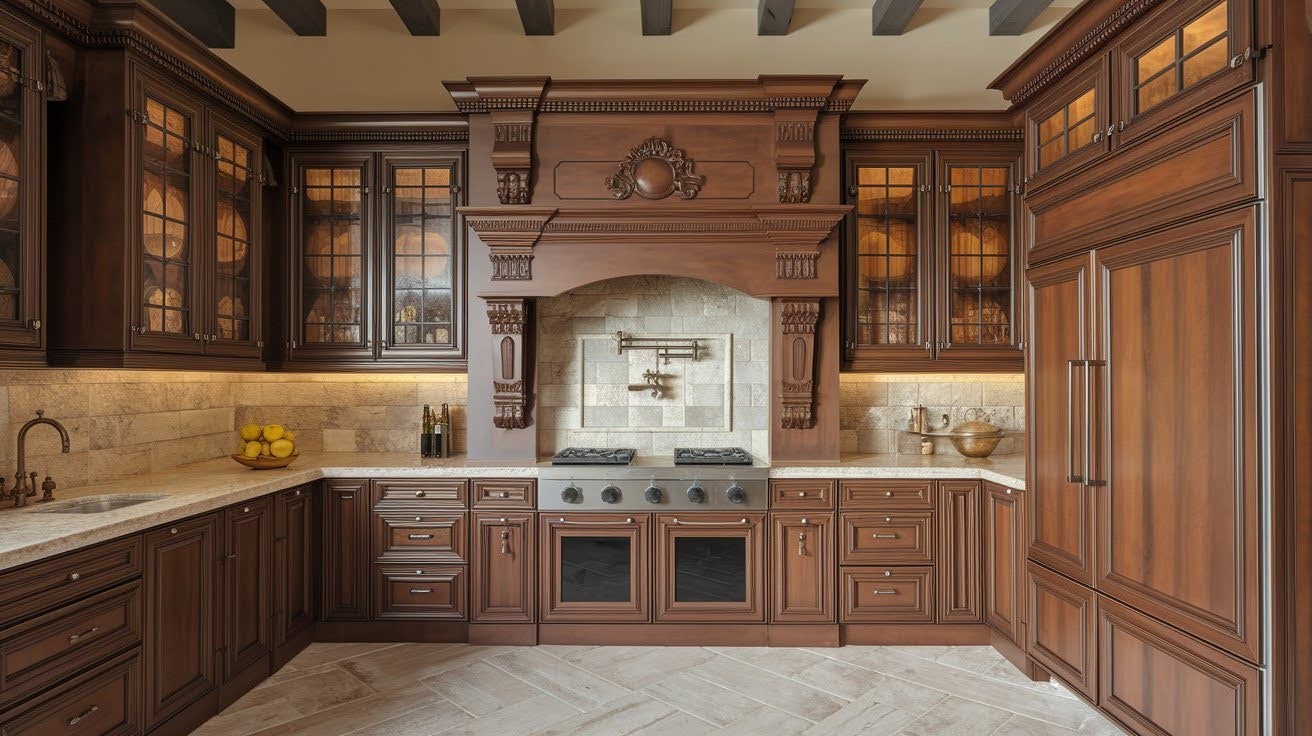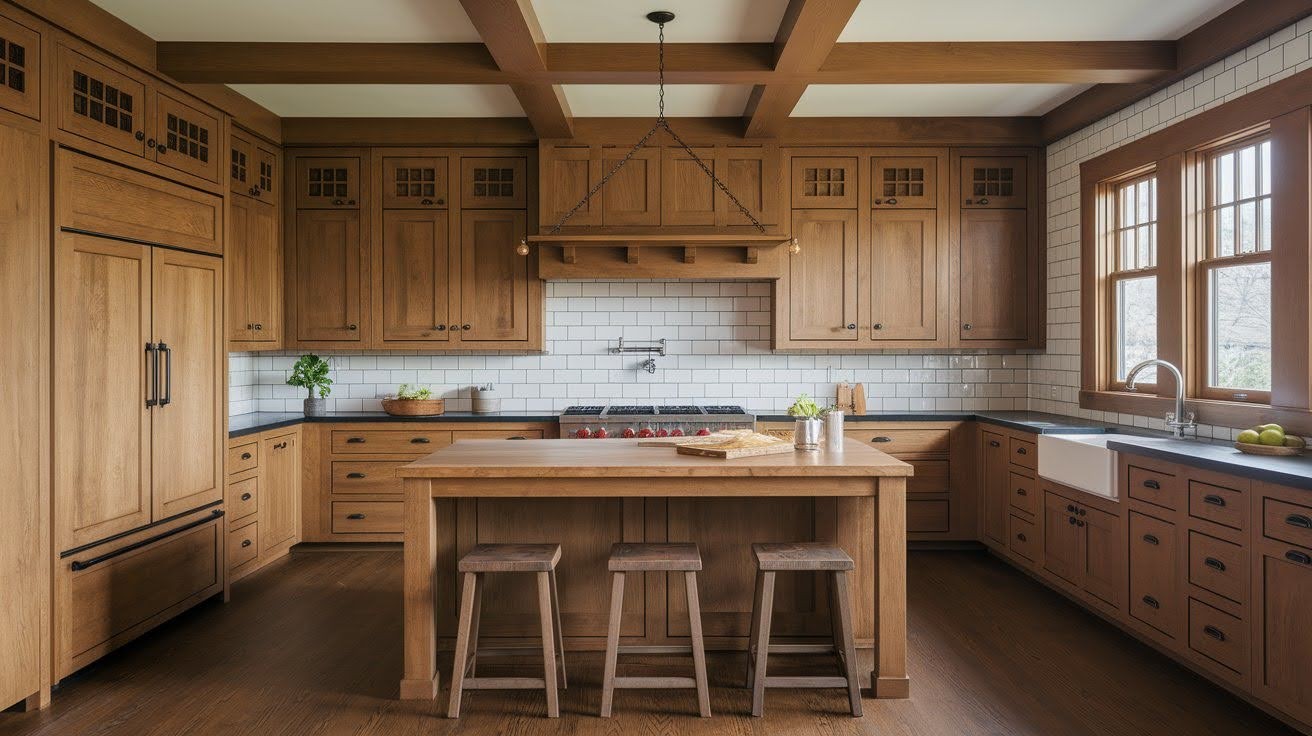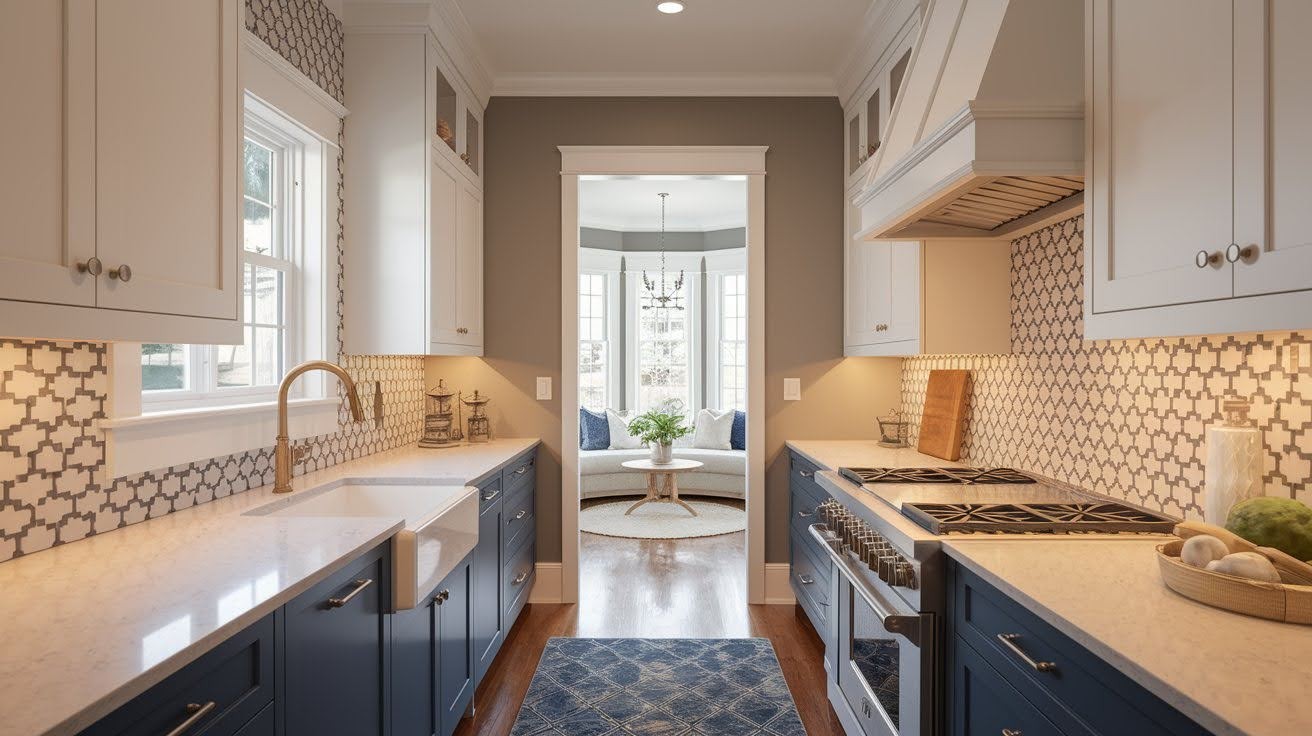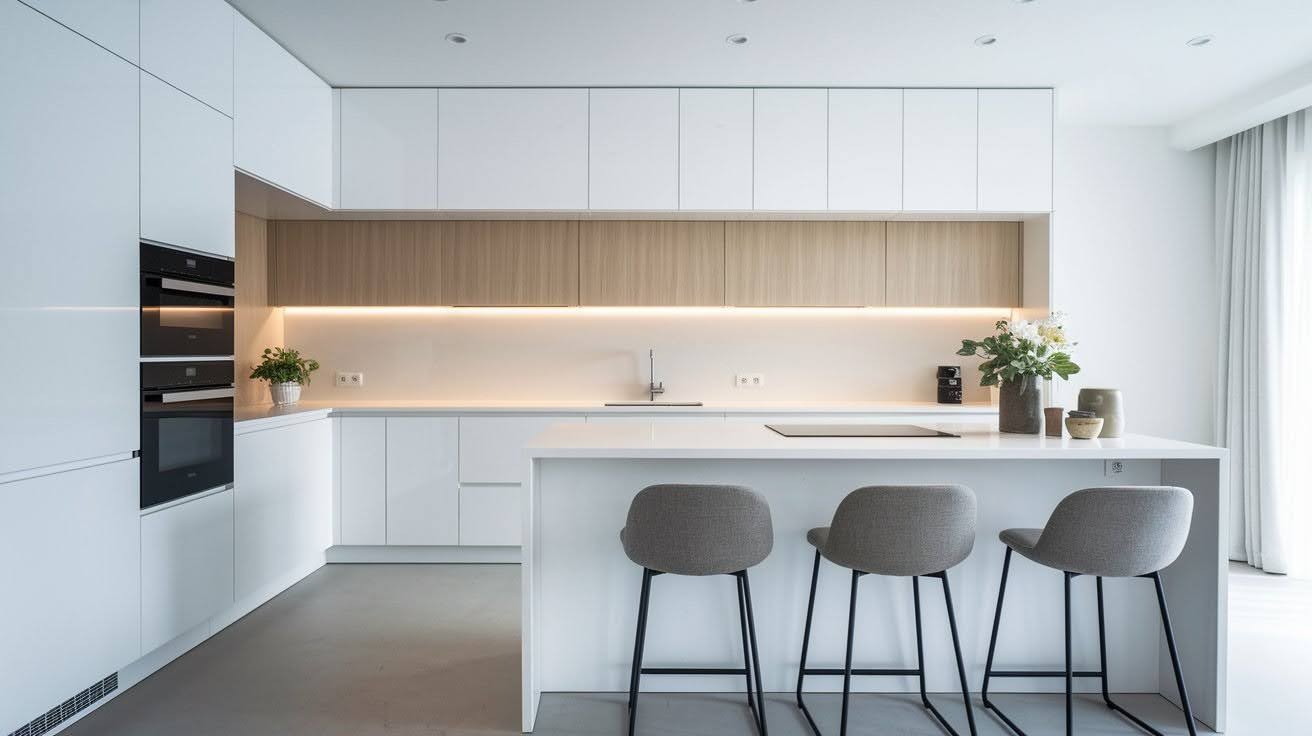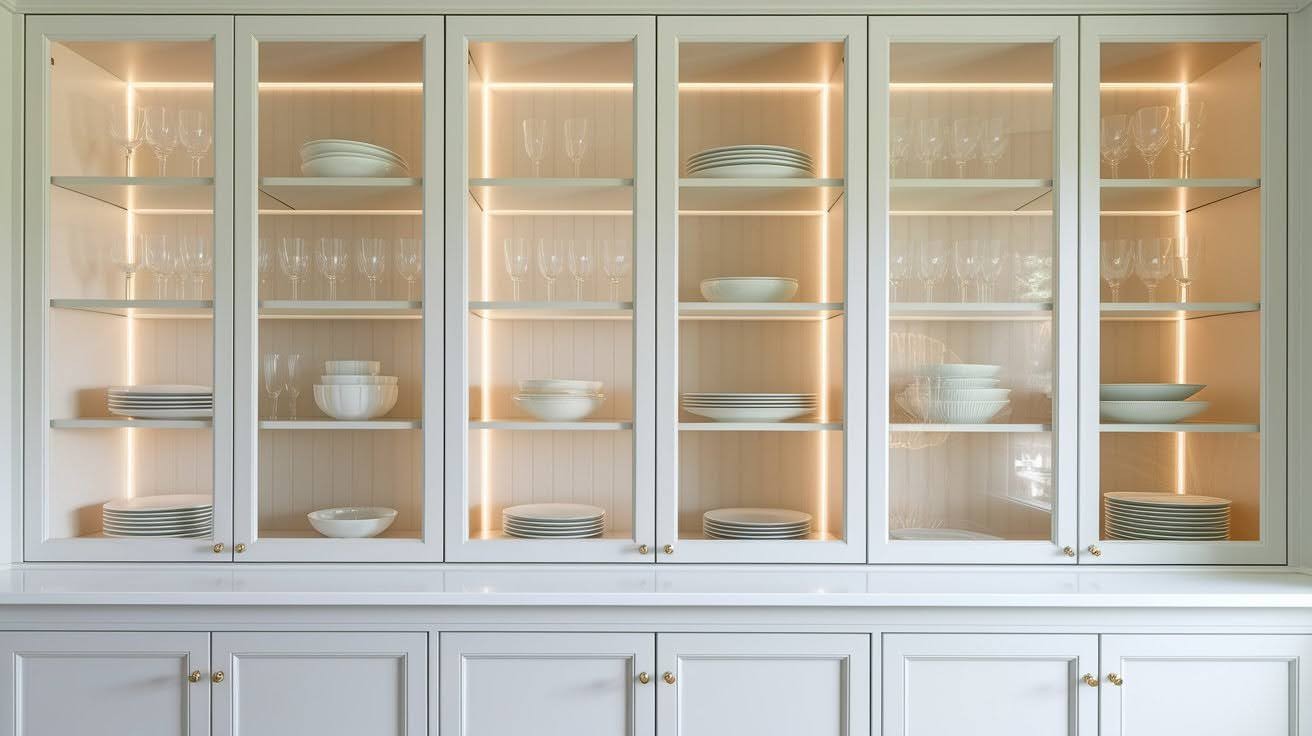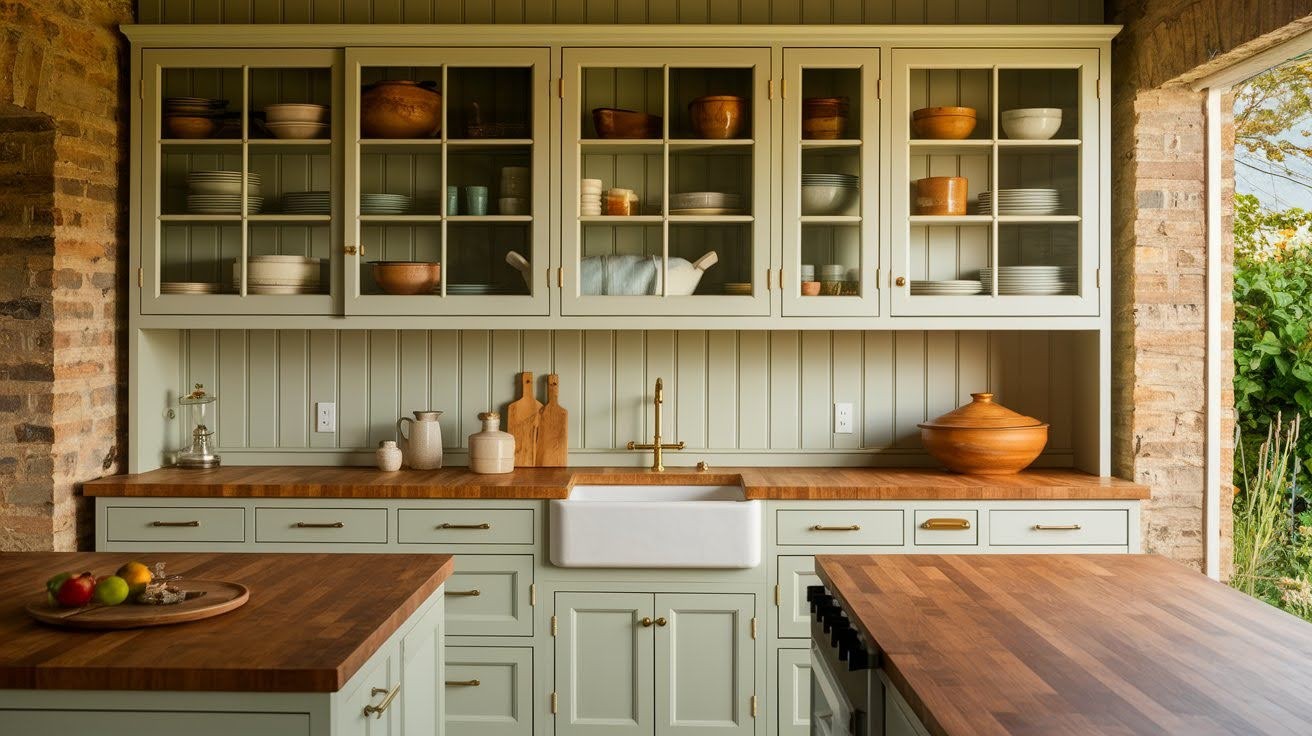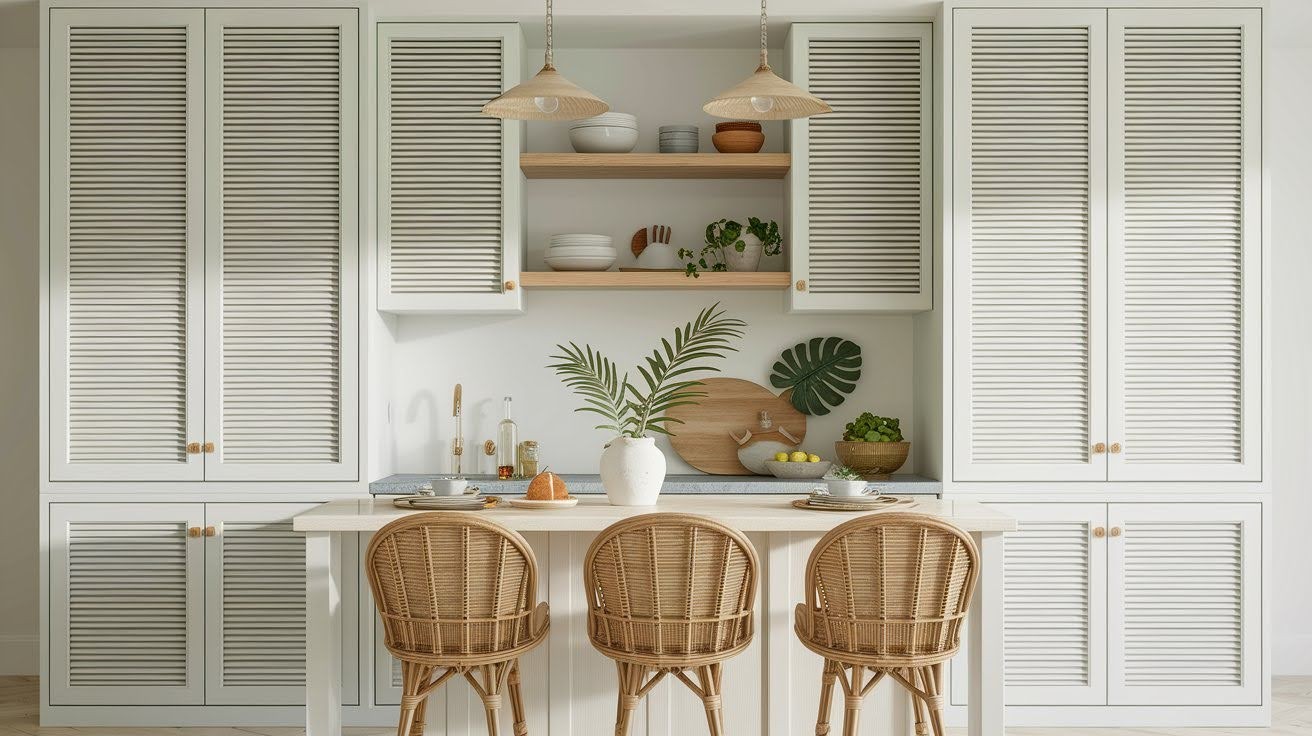In my experience of kitchen design, I’ve witnessed how the right cabinet style can completely change a room’s personality and functionality.
Cabinets occupy roughly 40% of your kitchen’s visual space, making them the single most impactful design element in the room.
I’ve seen outdated raised-panel doors make modern homes feel stuck in the past, while sleek flat-panel cabinets can instantly modernize traditional spaces.
The cabinet style you choose sets the tone for everything else, from hardware selection to countertop materials and paint colors.
This comprehensive list showcases fifteen popular styles that have proven successful in real homes.
My goal is to help you identify which cabinet personality matches your lifestyle, budget, and home’s character, ensuring your kitchen renovation creates lasting satisfaction rather than future regret.
List of 15 Popular Kitchen Cabinet Styles
Comprehensive guide featuring trending cabinet designs from classic Shaker to modern slab styles with detailed style descriptions.
1. Contemporary Kitchen Cabinets
Contemporary cabinets focus on flat surfaces, minimal detailing, and sleek lines that create clean, uncluttered appearances.
These designs emphasize functionality over ornamentation, featuring smooth door fronts without raised panels or decorative elements.
Glass panels, stainless steel accents, high-quality laminates, and high-gloss finishes dominate contemporary cabinet construction.
These materials reflect light and create sophisticated, polished looks that complement modern appliances and fixtures.
Modern urban homes and small spaces benefit most from contemporary cabinets, as their streamlined design maximizes visual space while providing efficient storage solutions.
2. Modern Kitchen Cabinets
Modern cabinets feature streamlined designs often inspired by midcentury aesthetics, emphasizing geometric forms and functional beauty.
These cabinets prioritize horizontal lines and integrated hardware for seamless appearances. Natural wood veneers, plastic laminates, and metal accents create the signature modern cabinet look.
Handle-less designs and push-to-open mechanisms maintain the clean, minimalist aesthetic. Sleek, uncluttered spaces with modern appliances showcase these cabinets perfectly, creating cohesive design schemes that feel fresh and current.
3. Rustic Kitchen Cabinets
Rustic cabinets celebrate natural wood finishes with weathered, distressed, or deliberately aged appearances that tell stories of time and use.
Heavy construction and visible wood grain create authentic, handcrafted character. Pine, oak, and reclaimed woods in warm earth tones like honey, amber, and deep browns form the foundation of rustic cabinet design.
Country-style homes, log cabins, and farmhouse kitchens where natural materials and casual comfort take precedence over formal sophistication work best with these cabinets.
4. Shaker Style Cabinets
Shaker cabinets feature a classic five-piece door construction with a recessed center panel surrounded by a simple frame.
This timeless design originated from 18th-century religious communities valuing simplicity and functionality. Clean lines and minimal ornamentation allow Shaker cabinets to complement modern, transitional, and traditional kitchen designs equally well.
All kitchen types benefit from Shaker’s timeless appeal, making these cabinets a safe investment that won’t look dated in the coming years.
5. Country Kitchen Cabinets
Country cabinets create cozy, inviting atmospheres through vintage-inspired design elements and casual, lived-in appearances.
These cabinets often feature decorative details that reference rural American traditions. Glass or tin panel inserts, beadboard detailing, and antique finishes add authentic country character to cabinet doors and frames.
Homes with casual or farmhouse vibes, where comfort and approachability matter more than formal design statements, work perfectly with country-style cabinets.
6. Mission Style Cabinets
Mission cabinets emphasize straight lines, solid construction, and minimal adornment, reflecting Arts and Crafts movement principles.
These designs celebrate honest craftsmanship and natural materials over decorative flourishes. Oak or cherry woods with visible grain patterns showcase the natural beauty of wood construction and traditional joinery techniques.
Arts and Crafts-inspired red interiors, where handmade quality and natural materials create authentic, timeless atmospheres, benefit most from mission-style cabinets.
7. French Country Cabinets
French Country cabinets feature soft, distressed finishes and ornamental detailing that evoke romantic European countryside aesthetics.
Gentle curves and decorative moldings create sophisticated yet approachable designs. Creams, whites, and warm earthy hues like sage green and dusty blue create the signature French
Country color scheme. Romantic, European-inspired kitchens where Old World charm and sophisticated comfort create inviting gathering spaces work best with this style.
8. Retro Style Cabinets
Retro cabinets capture vintage flair from the 1940s through the 1960s, celebrating mid-century design optimism and bold aesthetic choices.
Bright colors like turquoise and yellow, chrome hardware, and nostalgic rounded shapes create authentic period character.
Eclectic homeowners and retro-style lovers who appreciate vintage design and want to create unique, personality-filled spaces find these cabinets perfect for their needs.
9. Tuscan Kitchen Cabinets
Tuscan cabinets embody Old World elegance through rich finishes and sophisticated design details inspired by Italian countryside villas.
Decorative moldings, warm, earthy tones, and textured accents create luxurious appearances that feel both grand and welcoming.
Mediterranean and luxury-style homes, where rich materials and sophisticated details create an impressive, resort-like atmosphere, work perfectly with Tuscan-style cabinets.
10. Craftsman Style Cabinets
Craftsman cabinets showcase strong lines, detailed woodwork, and hand-crafted appearances that honor traditional American building techniques and quality construction methods.
Quarter-sawn oak, maple, and hickory woods highlight natural grain patterns and superior craftsmanship through visible joinery and solid construction.
Homes emphasizing craftsmanship and tradition, where quality construction and natural materials take precedence over trendy design elements, benefit most from craftsman-style cabinets.
11. Transitional Cabinets
Transitional cabinets blend modern and traditional design elements, creating balanced looks that feel current without abandoning classic appeal.
Neutral colors, simple profiles, and subtle ornamentation create versatile designs that complement various interior styles and personal preferences.
Homeowners wanting timeless but updated looks that won’t feel dated as design trends change over time find transitional cabinets ideal for their needs.
12. Slab/Flat-Panel Cabinets
Slab cabinets feature single, smooth surfaces without frames or raised panels, creating ultimate minimalist aesthetics through pure geometric forms.
Clean, minimalist designs often feature high-gloss finishes that reflect light and create sophisticated, gallery-like appearances.
Ultra-modern or Scandinavian kitchens where simplicity, functionality, and clean lines create serene, uncluttered environments work best with slab-style cabinets.
13. Glass-Front Cabinets
Glass-front cabinets feature transparent or frosted doors that display cabinet contents while maintaining organized, attractive storage solutions.
These cabinets add visual openness and create opportunities for displaying attractive dishware, glassware, or decorative items.
Light, airy, or high-end kitchen looks where display storage and visual interest enhance overall design sophistication benefit most from glass-front cabinet installations.
14. Beadboard Cabinets
Beadboard cabinets feature vertical planks with tongue-and-groove construction, creating textural interest through traditional American building techniques.
This classic detailing invokes relaxed, homey feelings that reference coastal and rural design traditions.
Coastal, country, or cottage-style kitchens where casual comfort and traditional craftsmanship create welcoming, unpretentious atmospheres work perfectly with beadboard cabinet designs.
15. Louvered Cabinets
Louvered cabinets feature slatted doors that allow air circulation while creating distinctive architectural texture through horizontal line patterns.
These unique doors offer architectural features that add visual interest and practical ventilation benefits.
Coastal homes or humid climates where air circulation helps protect cabinet contents and maintain optimal storage conditions benefit most from louvered cabinet installations.
Tips for Choosing the Right Cabinet Style
Expert guidance for selecting cabinet styles that complement your home’s architecture, lifestyle needs, budget constraints, and long-term design goals.
- Match your home’s architecture: Traditional homes suit Shaker or Mission styles, while contemporary structures work best with slab or flat-panel designs
- Align with lifestyle needs: Busy families benefit from easy-to-clean surfaces, while serious cooks need maximum storage with deep drawers and pantry units
- Consider maintenance requirements: Distressed finishes need more upkeep than smooth surfaces, and glass-front cabinets require frequent cleaning
- Balance budget with quality: Custom solid wood offers longevity but requires higher investment, while stock cabinets provide basic functionality affordably
- Choose timeless over trendy: Classic styles like Shaker and transitional designs maintain appeal longer than bold colors or dramatic textures
- Test samples first: Order door samples to see finishes under your kitchen lighting, and create mood boards combining all materials
Conclusion
After walking through these fifteen cabinet styles, you now have the foundation to make informed decisions that will serve your family for decades.
From timeless Shaker designs that work in any setting to bold contemporary slabs that make modern statements, each style offers unique benefits for different lifestyles and home types.
The right cabinets don’t just store your dishes-they set your kitchen’s entire mood and functionality.
Don’t be afraid to mix elements or adapt styles to fit your specific needs. I’ve seen homeowners successfully combine glass-front uppers with solid lowers, or add modern hardware to traditional doors.
Your kitchen should reflect your personality, not just follow design rules. Consider visiting local showrooms to touch different finishes and see full installations before deciding.
Frequently Asked Questions
What’s the difference between modern and contemporary cabinet styles?
Modern cabinets refer to specific midcentury-inspired designs with clean lines and natural materials like wood veneer. Contemporary cabinets represent current trends, focusing on minimalist aesthetics with high-gloss finishes and flat surfaces.
Which cabinet style works best for small kitchens?
Slab or flat-panel cabinets work excellently in small spaces due to their clean lines and light-reflecting surfaces. Glass-front cabinets also help create visual openness while providing necessary storage functionality.
Are Shaker cabinets still popular in 2024?
Shaker cabinets remain extremely popular due to their timeless five-piece door design that complements any kitchen style. Their versatility allows them to work equally well in modern, traditional, and transitional kitchen designs.
What cabinet style offers the best resale value?
Classic styles like Shaker, transitional, and simple raised-panel cabinets typically offer the best resale value. These timeless designs appeal to broad buyer preferences and won’t look dated in future years.
How do I choose between painted and stained cabinet finishes?
Painted finishes work well with contemporary, transitional, and country styles but require more maintenance and cost more initially. Stained finishes showcase natural wood grain beautifully and typically cost less, but may limit your color options.

